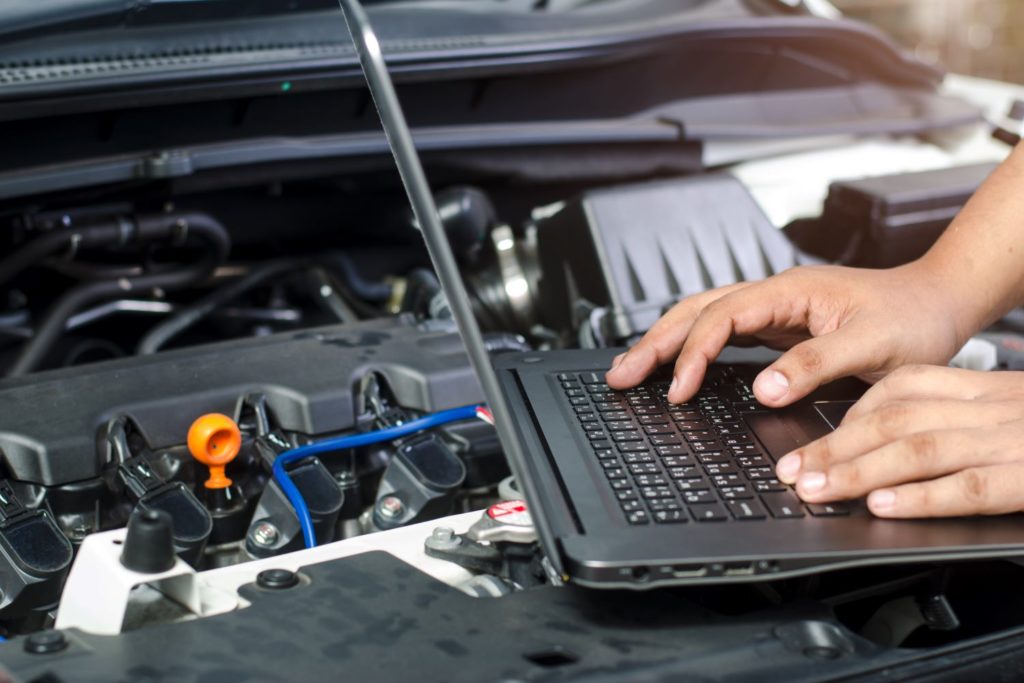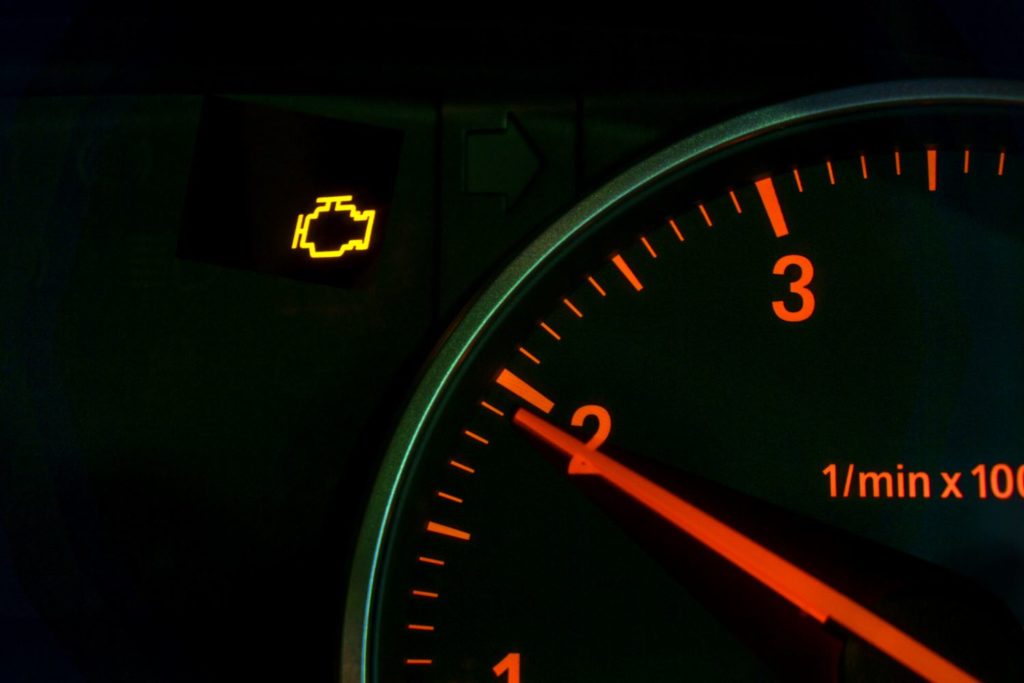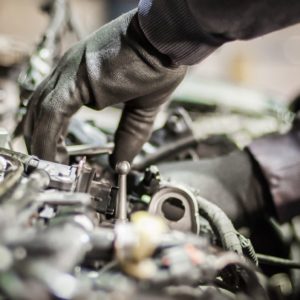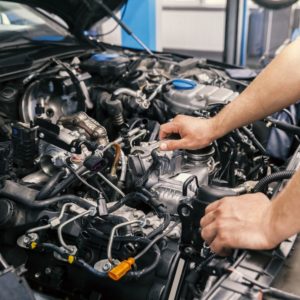An OBD-II code warns you about the possible issues your car may have. To successfully resolve these issues, you need to know what the logged code means. If you’re having trouble figuring out what code P0005 means and how to fix it, you’ve come to the right place. Read on to learn more about P0005, what triggers it, and the symptoms you should look out for.
What Does the P0005 Code Mean?
Diagnostic trouble code (DTC) P0005 stands for “Fuel Shutoff Valve A Control Circuit/Open.” This code refers to an issue in the fuel shutoff valve control, usually indicating a potential open circuit within the electric system. The code gets logged when the engine control module (ECM) detects a problem with the fuel pump shutoff valve.
The fuel shutoff valve controls the passage of fuel to the engine, depending on the position of the ignition switch. When this switch turns, the fuel shutoff solenoid protrudes or retracts a shaft that controls the flow of fuel to the engine. If the ignition is off or the switch is faulty, the shaft pops out within the fuel passage to block the fuel flow.

Circuit Open means that there’s a lack of continuity somewhere in the fuel shutoff valve circuit. Causes of open circuits vary, though this type of code could stem from broken wiring, poor connections across electrical connectors or previously repaired wiring, loss of ground that prevents current flow, blown fuses, defective relays, faulty switches, and any other issue that could prevent the flow of the current through the wiring.
This specific code rarely gets used by vehicle manufacturers, so if P0005 engine code appears, make sure you are using the correct diagnostic interface for your car.
Note About Code P0005 and Other Related Codes from Richard McCuistian, ASE Certified Master Automobile Technician
You will probably never see code P0005 or any of the related codes because almost no vehicle has a fuel shutoff solenoid. The injectors on EFI and GDI systems act as fuel shut off solenoids but they won’t set this code.
If the vehicle does have one of these solenoids, its stated purpose is to prevent “dieseling” (run on) by isolating the fuel rail from the fuel pump and lines.
Again, the very notion of this may seem odd, since the electronic fuel injectors are deactivated and closed by default when the ignition switch is turned to the off position on every system except the old Bosch K-Jetronic system, which has a fuel distributor and atomizers rather than fuel injectors.
If the vehicle is equipped with a fuel shutoff solenoid, it will be situated at or near the point where the fuel is delivered to the fuel rail. This solenoid, if present, could prevent the vehicle from starting by blocking fuel flow.

What are the Possible Causes of the P0005 Code?
P0005 is a generic code, so it can have several triggers. Here are the most common causes:
- Failed fuel shutoff valve
- Faulty fuel shutoff valve relay
- Powertrain Control Module (PCM) failure
- Circuit issues, such as damaged wiring or poor connections
What are the Common Symptoms of the P0005 Code?
Depending on the severity of the issue, the PCM may also store other related diagnostic trouble codes. For engine code P0005, it can appear alongside P0006 and P0007. Generally, you may notice the following symptoms if your vehicle stored a P0005 trouble code:
- Vehicle will not start
- Poor engine performance
- Stalling engine
- Check engine light on

How to Diagnose the P0005 Code
Diagnosing code P0005 can be difficult, as it has many possible causes. Aside from having a variety of triggers, it is a code rarely used by manufacturers, so there might not be enough information about this code.
As this is a rarely seen trouble code, it is best to refer to your manufacturer’s repair information for diagnostic instructions. Bear in mind that diagnostic and repair strategies may vary and largely depend on your vehicle’s make and model. If you’re not a seasoned auto repair DIYer, it is best to leave this job to the experts.
To give you an idea of what the troubleshooting process might involve, check out the video below:
How to Fix the P0005 Code
Similar to most OBD-II codes, there is no set solution for a P0005 code. Although code P0005 shares similar triggers and symptoms with various other engine codes, this does not mean that it can be fixed with a generic solution. Repair and diagnostic steps still depend on the specifications of your vehicle. A P0005 code on a Chevy may require a different repair method from that of a P0005 on a Honda.
If you’re not familiar with auto repair, leave the repairs to an expert. However, if you’re a skilled automotive DIYer and want to do the repairs yourself, there are online auto repair sources you can consult to help you identify which repair steps apply to your vehicle.
For instance, an ALLDATA subscription provides detailed factory repair information that you can use to resolve the DTC issues in your car. This should help you fix error code P0005 and serve as a reference for future problems you may encounter.
Where to Get Fuel System Parts to Fix the P0005 Code
Driving a vehicle with fuel system issues will eventually force you to leave it in the garage because of the additional expenses. Fortunately, you won’t have to deal with that problem for long when you shop for high-quality replacement parts here at CarParts.com.
Over a million auto parts are at your fingertips when you shop from us, and it only takes a few clicks to find what you need. Simply enter your vehicle’s specifications into our vehicle selector to start browsing for direct-fit fuel system replacement parts for your car, truck, or SUV. All our products pass the highest quality control standards, so you’re sure to get parts that last.
All our products come with a low-price and lifetime replacement guarantee, helping you get the best value for your money. Also, thanks to our strategically located warehouses across the US, we can deliver everything you need straight to your doorstep in as fast as two business days.
Can’t shop online? We’ve got you covered. Call us anytime using our toll-free hotline, and our team of customer service professionals will be ready to assist you.
Check out our fuel system parts today!
Any information provided on this Website is for informational purposes only and is not intended to replace consultation with a professional mechanic. The accuracy and timeliness of the information may change from the time of publication.



















CAN YOU TELL ME WHY MY 2014 CHEVY CRUZE LTZ WOULD BE OVERHEATING AND WON’T GO OVER 30 MPH….. ALSO WHEN YOU SHUT MY CAR OFF THE FAN CONTINUES TO RUN 7-10 MINUTES AND IT’S NEVER DONE THIS BEFORE.